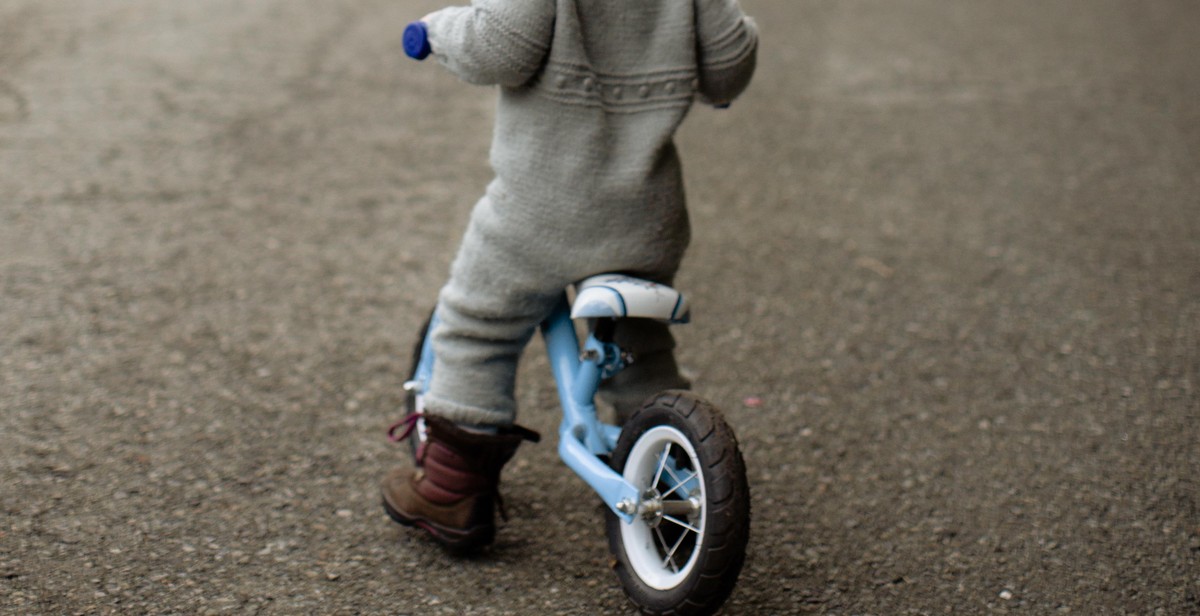Understanding the Impact of Childhood Trauma on Adult Mental Health
Childhood is a critical stage of life that shapes an individual’s personality and future. It’s a time when a person develops social, emotional, and cognitive abilities that will determine how they interact with the world. Unfortunately, not all children have a safe and secure childhood, and many experience traumatic events that can have a lasting impact on their mental health.
Childhood trauma can take many forms, including physical, emotional, or sexual abuse, neglect, or witnessing violence or substance abuse in the home. These experiences can lead to a range of mental health issues, including anxiety, depression, post-traumatic stress disorder (PTSD), and substance abuse disorders.
The Importance of Understanding Childhood Trauma
Understanding the impact of childhood trauma is critical in addressing the mental health needs of individuals who have experienced it. It’s also important in preventing future trauma by identifying and addressing risk factors and providing support to children and families in need.
In this article, we’ll explore the effects of childhood trauma on mental health, including the long-term consequences it can have on an individual’s well-being. We’ll also discuss the importance of recognizing and addressing childhood trauma to promote healing and recovery.

Defining Childhood Trauma
Childhood trauma is a term used to describe the experiences that leave a deep and lasting impact on a child’s physical, emotional, and social development. It refers to any situation that poses a threat to a child’s safety, security, or well-being. Childhood trauma can take many different forms, ranging from physical, emotional, and sexual abuse to neglect, abandonment, and exposure to violence.
Types of Childhood Trauma
There are several types of childhood trauma that can have a profound impact on a child’s mental health:
- Physical abuse: This type of trauma involves physical harm or injury inflicted on a child by an adult or caregiver.
- Emotional abuse: This type of trauma involves the persistent emotional maltreatment or neglect of a child, which can result in significant emotional harm.
- Sexual abuse: This type of trauma involves any sexual activity between an adult or older adolescent and a child, which can have long-lasting effects on a child’s emotional and psychological well-being.
- Neglect: Neglect involves the failure of a caregiver to provide for a child’s basic needs, such as food, shelter, and medical care.
- Abandonment: Abandonment involves the desertion of a child by a parent or caregiver, which can lead to feelings of rejection, loss, and insecurity.
- Exposure to violence: This type of trauma involves witnessing or experiencing violence, such as domestic violence, community violence, or war.
Causes of Childhood Trauma
Childhood trauma can be caused by a variety of factors, including:
- Family dysfunction: This can include parental substance abuse, mental illness, divorce, or a lack of emotional support.
- Socioeconomic factors: Poverty, unemployment, and social isolation can increase the risk of childhood trauma.
- Environmental factors: Exposure to natural disasters, accidents, or other traumatic events can also cause childhood trauma.
- Individual factors: Some children may be more vulnerable to trauma due to their age, gender, temperament, or existing mental health conditions.
| Type of Trauma | Definition |
|---|---|
| Physical abuse | Physical harm or injury inflicted on a child by an adult or caregiver. |
| Emotional abuse | Persistent emotional maltreatment or neglect of a child, which can result in significant emotional harm. |
| Sexual abuse | Any sexual activity between an adult or older adolescent and a child, which can have long-lasting effects on a child’s emotional and psychological well-being. |
| Neglect | Failure of a caregiver to provide for a child’s basic needs, such as food, shelter, and medical care. |
| Abandonment | Desertion of a child by a parent or caregiver, which can lead to feelings of rejection, loss, and insecurity. |
| Exposure to violence | Witnessing or experiencing violence, such as domestic violence, community violence, or war. |

Effects of Childhood Trauma on Adult Mental Health
Childhood trauma can have a lasting impact on an individual’s mental health. The effects of trauma can manifest in a variety of ways, including post-traumatic stress disorder (PTSD), depression, anxiety, and substance abuse.
Post-Traumatic Stress Disorder (PTSD)
PTSD is a mental health condition that can develop after experiencing or witnessing a traumatic event. Childhood trauma, such as physical or sexual abuse, can lead to the development of PTSD in adulthood. Symptoms of PTSD may include flashbacks, nightmares, and avoidance of triggers that remind the individual of the trauma.
Depression
Childhood trauma has been linked to an increased risk of developing depression in adulthood. The emotional and psychological effects of trauma can lead to feelings of sadness, hopelessness, and a lack of motivation. Individuals who have experienced childhood trauma may also struggle with low self-esteem and difficulty forming healthy relationships.
Anxiety
Anxiety is another common mental health issue that can result from childhood trauma. Individuals who have experienced trauma may struggle with feelings of anxiety and fear, often related to the trauma they experienced. This can lead to difficulty with daily activities and social interactions.
Substance Abuse
Childhood trauma has also been linked to an increased risk of substance abuse in adulthood. Individuals who have experienced trauma may turn to drugs or alcohol as a way to cope with their emotions and memories. Substance abuse can lead to a variety of negative consequences, including physical health problems, financial difficulties, and legal issues.
- PTSD
- Depression
- Anxiety
- Substance Abuse
Overall, childhood trauma can have a significant impact on an individual’s mental health in adulthood. It is important for individuals who have experienced trauma to seek support and treatment to address the effects of their experiences and improve their mental health.

The Cycle of Childhood Trauma
Childhood trauma has a profound impact on mental health, and it can manifest in a variety of ways. Survivors of childhood trauma often experience difficulty with relationships and parenting challenges later in life. Understanding the cycle of childhood trauma is crucial for identifying and addressing the root causes of these challenges.
How Childhood Trauma Impacts Relationships
Childhood trauma can make it difficult for survivors to form healthy relationships. They may struggle with trust, intimacy, and emotional regulation. Survivors of childhood trauma may also have a tendency to repeat unhealthy relationship patterns, such as choosing partners who are emotionally unavailable or abusive. These patterns can perpetuate the cycle of trauma and lead to further emotional distress.
Survivors of childhood trauma may also struggle with boundaries and communication in relationships. They may have difficulty expressing their needs or setting limits, which can lead to feelings of resentment or powerlessness. Alternatively, they may have rigid boundaries and struggle to let others in, leading to feelings of loneliness and isolation.
Parenting Challenges for Survivors of Childhood Trauma
Survivors of childhood trauma may also face unique challenges when it comes to parenting. They may struggle with feelings of inadequacy or insecurity, which can make it difficult to provide emotional support and guidance to their children. They may also struggle with emotional regulation, leading to outbursts or emotional withdrawal that can impact their children’s well-being.
Additionally, survivors of childhood trauma may have difficulty setting boundaries and enforcing rules with their children. They may struggle with feelings of guilt or fear, leading them to avoid discipline or confrontations. This can result in inconsistent or ineffective parenting, which can impact their children’s behavior and emotional health.
- Childhood trauma impacts relationships and parenting in several ways
- Survivors may struggle with trust, emotional regulation, and communication
- Survivors may also face challenges with providing emotional support and guidance to their children
- Setting boundaries and enforcing rules can also be difficult for survivors of childhood trauma
| Impact on Relationships | Parenting Challenges |
|---|---|
| Difficulty with trust, intimacy, and emotional regulation | Feelings of inadequacy or insecurity |
| Tendency to repeat unhealthy relationship patterns | Struggle with emotional regulation |
| Difficulty with boundaries and communication | Difficulty setting boundaries and enforcing rules |

Treatment for Adult Survivors of Childhood Trauma
Adult survivors of childhood trauma often experience a range of mental health issues, including anxiety, depression, and post-traumatic stress disorder (PTSD). Fortunately, there are several treatment options available that can help individuals manage their symptoms and improve their overall quality of life.
Therapy
Therapy is often the first line of treatment for adult survivors of childhood trauma. There are several types of therapy that have been shown to be effective in treating trauma-related mental health issues, including Cognitive Behavioral Therapy (CBT), Eye Movement Desensitization and Reprocessing (EMDR), and Dialectical Behavior Therapy (DBT).
CBT is a type of talk therapy that helps individuals identify and change negative thought patterns and behaviors that contribute to their symptoms. EMDR is a type of therapy that uses eye movements to help individuals process traumatic memories and emotions. DBT is a type of therapy that helps individuals learn skills to manage their emotions and improve their relationships.
Medication
Medication can be used in conjunction with therapy to help manage symptoms of anxiety, depression, and PTSD. Antidepressants, anti-anxiety medications, and mood stabilizers are commonly prescribed for individuals with trauma-related mental health issues.
It is important to note that medication should not be used as the sole treatment for trauma-related mental health issues. Rather, it should be used in conjunction with therapy and other self-care practices to help individuals manage their symptoms.
Self-Care
Self-care is an important component of treatment for adult survivors of childhood trauma. This can include a range of activities, such as exercise, meditation, and journaling.
Engaging in self-care activities can help individuals manage their symptoms and improve their overall well-being. It is important for individuals to find self-care practices that work for them and to make them a regular part of their routine.
| Treatment Options | Pros | Cons |
|---|---|---|
| Therapy | Effective in treating trauma-related mental health issues | May be expensive and time-consuming |
| Medication | Can help manage symptoms of anxiety, depression, and PTSD | May have side effects and should not be used as the sole treatment |
| Self-Care | Can improve overall well-being and help manage symptoms | May require time and effort to find effective self-care practices |

Conclusion
Childhood trauma can have a profound impact on an individual’s mental health in adulthood. It is important to recognize the signs and symptoms of trauma and seek appropriate treatment and support.
Seeking Professional Help
If you or someone you know has experienced childhood trauma, it is important to seek professional help. This may include therapy, counseling, or medication to manage symptoms of anxiety, depression, and other mental health conditions. Additionally, seeking support from friends and family can also be beneficial.
Prevention and Early Intervention
Preventing childhood trauma is crucial for promoting healthy development and reducing the risk of mental health issues in adulthood. Early intervention and support can also be effective in reducing the impact of trauma on a child’s mental health.
Continued Education and Awareness
Continued education and awareness about childhood trauma and its impact on mental health is essential. This includes understanding the prevalence and causes of trauma, recognizing the signs and symptoms, and promoting access to appropriate treatment and support.
| Organization | Website | Contact Information |
|---|---|---|
| National Child Traumatic Stress Network | www.nctsn.org | 1-800-273-8255 |
| National Alliance on Mental Illness | www.nami.org | 1-800-950-6264 |
| Childhelp | www.childhelp.org | 1-800-422-4453 |
Remember, childhood trauma is a serious issue that can have lasting effects on mental health. Seeking help and support is the first step towards healing and recovery.
